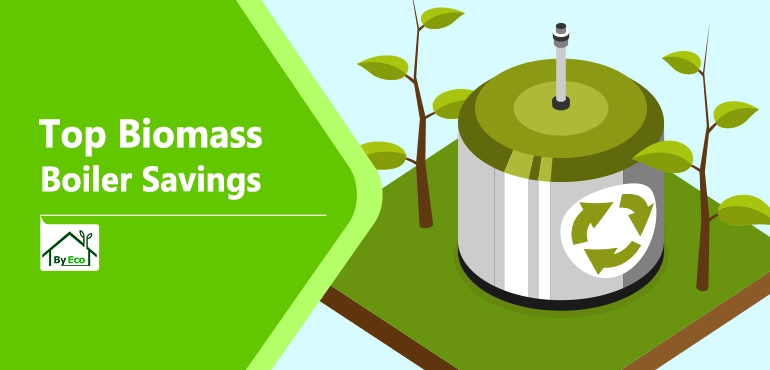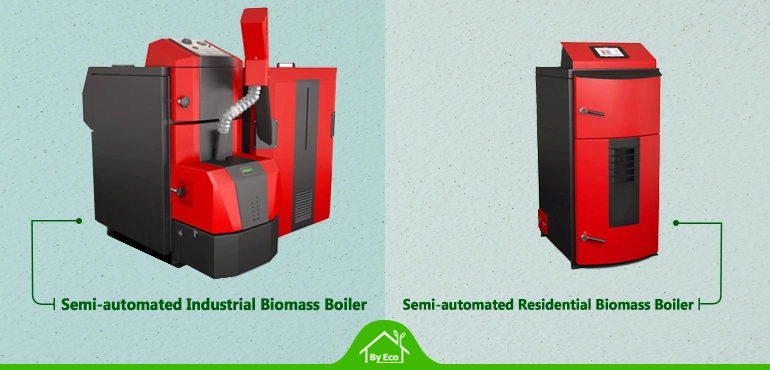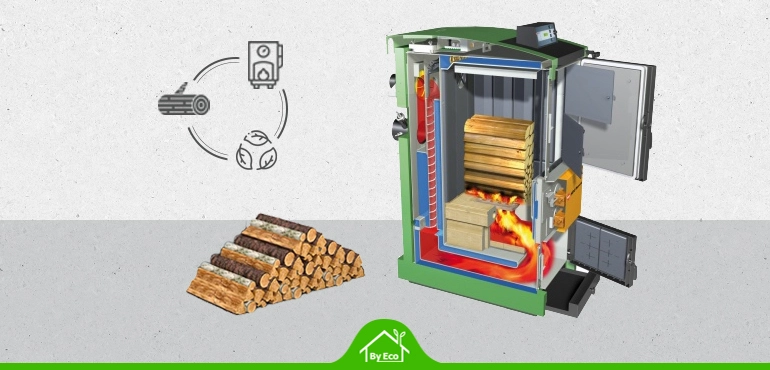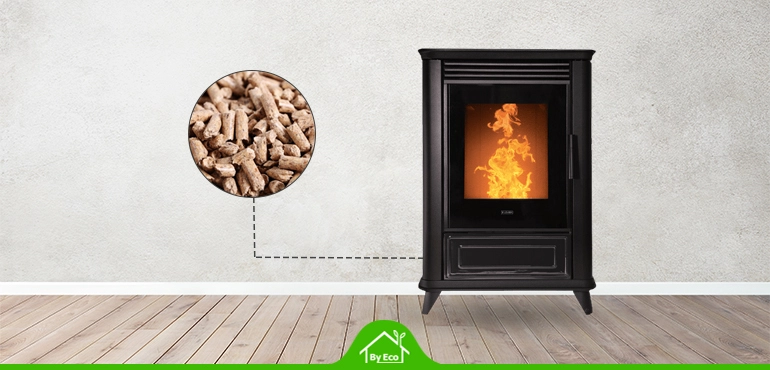Your Guide to Biomass Boiler Grants in the UK: Unlock Big Savings

Biomass boiler grants in the UK are designed to encourage the adoption of renewable energy sources, reduce carbon emissions, and provide financial assistance to those making the switch. These grants not only support environmental sustainability but also offer significant cost savings for households and businesses. This comprehensive guide delves into everything you need to know about biomass boiler grants, including eligibility criteria, the application process, available funding options, and more.
One key benefit of biomass boilers is their carbon-neutral nature. Biomass is a renewable energy source that regenerates quickly by growing new plants or trees. It's considered carbon-neutral because the carbon dioxide released during burning is reabsorbed by plants, making it environmentally friendly. Additionally, biomass boilers help dispose of waste wood and other materials, enhancing their sustainability.
Switching from coal or electric heating to a biomass boiler can reduce your carbon dioxide output by up to 9.5 tons annually. Traditional fuel prices like oil and gas are steadily increasing, making biomass a more stable and often cheaper alternative. Biomass needed for pellet boilers has stable prices, making biomass boilers ideal for replacing electric and solid fuel systems.
The UK government supports biomass boilers as part of its goal to achieve net-zero carbon emissions by 2050. Biomass boilers not only reduce your carbon footprint but also lower rising energy bills, which are expected to increase significantly. For more information about biomass boilers and other types of boilers, check out our other blog post, The Best Boilers in the UK.
What is a Biomass Boiler?
A biomass boiler is a type of heating system that uses organic materials, commonly known as biomass, as fuel to produce heat. Unlike traditional boilers that rely on fossil fuels such as natural gas or oil, biomass boilers burn renewable resources like wood pellets, wood chips, logs, and other agricultural residues. These boilers offer a sustainable and eco-friendly alternative for heating homes and businesses, aligning with efforts to reduce carbon footprints and promote renewable energy sources.
Understanding Biomass Boiler Types and Their Operations
Biomass boilers are versatile systems designed to use organic materials for heating. There are several types of biomass boilers, each suited to different needs. Here’s a breakdown of the main types:
- Fully Automated Biomass Boilers
- Combined Heat and Power (CHP) Biomass Systems
- Semi-automated Industrial Biomass Boilers
- Semi-automatic Residential Biomass Boilers
- Log-fed Biomass Boilers
- Pellet Stove Boilers
How Each Type Works
Fully Automated Biomass Boilers:
These boilers automate the entire process from fuel feeding to ash disposal. Wood pellets or chips are stored in a large hopper and fed into the combustion chamber through an auger. An electronic ignition system lights the biomass, and a fan aids in distributing the heat produced. Heat exchangers transfer the heat to water, which is then piped through the central heating system. The operation is monitored by a control system that adjusts the feed rate and air intake to maintain efficient combustion.
Combined Heat and Power (CHP) Biomass Systems:
CHP systems generate both heat and electricity. Biomass is burned in a high-efficiency boiler to produce heat, and the steam generated drives a turbine to produce electricity. The system uses advanced controls to manage both heat and power output, optimising the efficiency of both processes. These systems are particularly beneficial for larger installations where both heat and substantial electricity are required.
Semi-automated Industrial Biomass Boilers:
These are larger systems designed for bigger properties or industrial use. They feature a large hopper that requires periodic manual refilling. The biomass is automatically fed into the boiler at set intervals to maintain constant heating. These boilers usually have several combustion modes—full, reduced, and slumber—to adapt to different heat demands.
Semi-automatic Residential Biomass Boilers:
Ideal for residential use, these boilers are smaller and can fit within living spaces due to their aesthetic designs. They operate similarly to their industrial counterparts but on a smaller scale. Fuel must be manually added more frequently, though many models include automated features for controlling the combustion process.

Log-fed Biomass Boilers:
These boilers are manually fed with logs and are suitable for places with ready access to firewood. They require more hands-on management but are cost-effective for those with a direct fuel source. The logs are burned in a combustion chamber, with heat transferred to water through a heat exchanger, similar to other biomass boilers.

Pellet Stove Boilers:
Pellet stove boilers are compact and often placed in living areas due to their attractive designs. They burn wood pellets, automatically fed from a storage hopper, making them convenient and less labour-intensive. These boilers are efficient in heating spaces directly and can also be connected to water heating systems.
Each biomass boiler type offers a unique combination of automation and efficiency, catering to different energy needs and user preferences. By selecting the appropriate boiler type, households and businesses can achieve efficient, sustainable heating solutions tailored to their specific requirements.

Importance of Biomass Boilers
Biomass boilers play a crucial role in the transition to a more sustainable future. These eco-friendly systems utilise organic materials to generate heat and power, providing an efficient and low-carbon alternative to traditional fossil fuels. Biomass boilers offer a renewable energy source that can be replenished quickly, making them a more sustainable option than non-renewable fossil fuel boilers. Additionally, biomass boilers produce fewer carbon emissions than traditional heating systems, making them an excellent way to offset your carbon footprint and contribute to a greener environment.
In fact, 12 cubic metres of wood chips can produce similar levels of heat to 1000 litres of heating oil, making biomass a viable alternative to traditional fuels. Moreover, the UK wastes around six million tonnes of wood each year, which could be used to heat homes and businesses. The forestry industry alone wastes enough biomass to heat 1,500,000 homes annually. By switching to a biomass boiler, households and businesses can reduce their carbon dioxide output by up to 9.5 tons annually, while also supporting a more sustainable future.
Benefits of Switching to Biomass Boilers
Switching to a biomass boiler offers numerous benefits, including efficiency optimization, prolonged lifespan, environmental impact, and safety assurance. Regular maintenance of biomass boilers ensures that they operate at optimal levels, reducing energy consumption and operational costs. Timely maintenance can also significantly extend the lifespan of the boiler, which typically lasts around 18-20 years. The payback period of biomass varies depending on the efficiency of the boiler and lifestyle, but typically ranges from 5-9 years.
By investing in a biomass boiler, households and businesses can reduce their reliance on fossil fuels and lower their energy bills. With the UK government supporting biomass boilers as part of its goal to achieve net-zero carbon emissions by 2050, now is an excellent time to consider making the switch. By doing so, you'll not only reduce your carbon footprint but also contribute to a more sustainable future for generations to come.
Available Biomass Boiler Grants in the UK
Switching to a wood-powered renewable heat source in your home could make you eligible for financial support payments from the UK government. Biomass boiler grants are available for those living in England, Scotland, Wales, and Northern Ireland. Typically, homeowners or private and social landlords are eligible. New-build properties are generally excluded unless you are building your own home.
If you live in England or Wales, the government offers a grant of £5,000 towards the cost of installing a biomass boiler for the first time in your home or small business premises. This initiative aims to help you transition to low-carbon heating systems, significantly reducing your energy costs and carbon emissions.
2024 marks a significant turning point for bonuses and grants for new boiler installations. Major changes are on the horizon to address energy challenges and reduce pollutant emissions.
Boiler Upgrade Scheme: Your Guide to Eligibility and Benefit
Switching to a wood-powered renewable heat source in your home could make you eligible for financial support payments from the UK government. Biomass boiler grants are available for those living in England, Scotland, Wales, and Northern Ireland. Typically, homeowners or private and social landlords are eligible. New-build properties are generally excluded unless you are building your own home.
If you live in England or Wales, the government offers a grant of £5,000 towards the cost of installing a biomass boiler for the first time in your home or small business premises. This initiative aims to help you transition to low-carbon heating systems, significantly reducing your energy costs and carbon emissions.
2024 marks a significant turning point for bonuses and grants for new boiler installations. Major changes are on the horizon to address energy challenges and reduce pollutant emissions.
Boiler Upgrade Scheme: Your Guide to Eligibility and Benefit
The Boiler Upgrade Scheme (BUS) was established on April 1, 2022, to help households cover the initial costs of installing biomass boilers. Replacing the Renewable Heat Incentive (RHI), this scheme offers grants of £5,000 to reduce the starting costs for a biomass boiler installation. Part of a £3.9 billion funding effort under the Heat and Buildings Strategy, the scheme aims to cut carbon emissions from homes, with a national target for all new heating system installations to be low-carbon by 2035.
The Boiler Upgrade Scheme is a government program designed to encourage homeowners in England and Wales to switch from fossil fuel heating systems to low-carbon alternatives, such as heat pumps and biomass boilers. The initiative aims to make low-carbon heating more accessible and affordable for homeowners and small business property owners. Administered through grant vouchers, the scheme provides financial assistance for energy efficiency upgrades. With a budget of £450 million over three years, this scheme is part of a nearly £4 billion strategy to reduce carbon emissions. The Boiler Upgrade Scheme was launched on May 23, 2022, and is open for grant applications until December 31, 2027.
Eligibility Criteria for the Boiler Upgrade Scheme
You may be eligible for the Boiler Upgrade Scheme if you meet the following requirements:
- Homeownership: You are a homeowner, small landlord, or private landlord in England and Wales.
- Existing Heating System: You are replacing a fossil fuel heating system (e.g., oil, gas, direct electric), not an existing low-carbon heating system.
- Energy Performance Certificate (EPC): You have a valid EPC with no unfulfilled loft or cavity wall insulation recommendations.
- Installation Capacity: Your property has an installation capacity up to 45kWth, which is sufficient for most UK properties.
- Location: The scheme supports biomass boilers only in rural areas.
Boiler Replacement Scheme: Your Guide to Eligibility and Benefits
The Boiler Replacement Scheme was first established in Northern Ireland in 2013 to assist owner-occupiers in making their homes more energy-efficient through the installation of new boilers. This grant can save you up to £1,000 depending on your income, while making your home more sustainable. If you earn less than £20,000, you can receive between £700 and £1,000 for the boiler replacement. For incomes between £20,000 and £40,000, the grant amount ranges from £400 to £500.
The scheme allows you to replace your inefficient boiler with a more energy-efficient option. The replacement scheme works with the following boilers:
Your current, less efficient boiler:
- Gas boiler
- LPG boiler
- Oil-fired boiler
Can be replaced with any of the following more efficient boilers:
- Gas boiler
- Oil boiler
- Biomass wood pellet fired boiler
Eligibility Criteria for the Boiler Replacement Scheme
You may be eligible for the Boiler Replacement Scheme if you meet the following requirements:
- Homeownership: You are the owner-occupier of your main home in Northern Ireland.
- Income: Your gross annual income is less than £40,000.
- Current Boiler: You have an inefficient boiler that is at least 15 years old.
- Approval: You have written approval from the Housing Executive.
ECO4 (Energy Company Obligation): Boosting Energy Efficiency in the UK
The ECO4 scheme, which started in April 2022 and will run until March 2026, is the fourth phase of the Energy Company Obligation (ECO) program. Since its launch in 2013, ECO has successfully installed over 3.1 million measures to improve energy efficiency in UK homes. With a funding allocation of £1 billion annually, the scheme mandates electricity suppliers to support low-income households by implementing energy efficiency measures such as boiler replacement or repair. ECO4 aims to upgrade all homes in the UK to an energy efficiency rating of at least D by 2025. This initiative is part of a £4 billion strategy to make homes more energy-efficient, cut carbon emissions, and assist families struggling with high energy bills. Under ECO4, 5,000 boilers will be installed, benefiting those most in need.
Eligibility Criteria for the ECO4 Scheme
To be eligible for the ECO4 Scheme, you must meet the following requirements:
- Homeownership or Tenancy: You are an owner-occupier or live in private rented accommodation.
- Energy Performance Certificate (EPC): You have a valid EPC for your property with a rating of D, E, F, or G.
-
Income or Benefits: You are a recipient of benefits, state
aid, allowances, or credits. Note that several disability
benefits included in ECO3 have been removed from the ECO4
scheme, but ECO4 now offers more aid to low-income
households, even if they are not on qualifying benefits.
You may qualify through LA Flex (Local Authority Flex) by
fulfilling one of the following conditions:
- Being in a low-income household
- Being over the age of 65
- Having a child under the age of 5
- Having a serious illness
- Being in receipt of child benefits
Nest Scheme Wales: Enhancing Home Energy Efficiency
The Nest Scheme Wales, initiated in 2011, aims to eradicate fuel poverty and improve home energy efficiency for low-income households. The scheme offers free advice and installations to help households reduce energy bills and stay warm. The latest version of the project will continue through to March 2024. From 1 April 2024, the scheme will focus more on low-carbon technologies, supporting Wales' ambition to achieve net-zero emissions by 2050.
Eligibility Criteria for the Nest Scheme Wales
To determine eligibility for the Nest Scheme, a Nest advisor will assess your property and recommend energy-efficient improvements. You may be eligible for free boilers, central heating systems, and other home upgrades if you meet the following criteria:
- Homeownership or Tenancy: You own your home or rent from a private landlord.
- Energy Efficiency: Your home is energy inefficient and expensive to heat.
- Income or Health: You or someone you live with receive a means-tested benefit or meet health criteria listed by Nest.
Relevant Means-Tested Benefits
To qualify for the Nest scheme, you or someone you live with must receive one of the following means-tested benefits:
- Child Tax Credit (with an income below £16,105 per year)
- Council Tax Reduction
- Housing Benefit
- Income-Based Jobseeker’s Allowance
- Income-Related Employment and Support Allowance
- Income Support
- Pension Credit
- Universal Credit
- Working Tax Credit (with an income below £16,105 per year)
Health Condition Eligibility Criteria
If you or someone you live with has a health condition that could be worsened by living in an energy inefficient home, you may also qualify for support. Eligible health conditions include:
- Chronic Respiratory Conditions: Respiratory infection, chronic obstructive pulmonary disease, or broncho-constriction in asthma.
- Cardiovascular Conditions: Cardiovascular disease, strokes, or heart attacks.
- Mental Health Conditions: Depression, anxiety, psychosis, bipolar disorders, dementia, or intellectual and developmental disorders.
The Nest Scheme Wales offers a tailored package of energy efficiency improvements, including insulation, heat pumps, solar panels, or central heating. This initiative not only helps reduce energy bills but also contributes to a greener and more sustainable future for Wales.
VAT Reduction Scheme: Lower Your Biomass Boiler Costs
The VAT Reduction Scheme (Value Added Tax) is an excellent opportunity to reduce the costs associated with installing a biomass boiler. This scheme offers significant savings for those investing in energy-efficient, wood-fueled heating systems. By reducing the VAT rate on energy-saving products to 5%, homeowners can benefit from lower installation costs and contribute to a more sustainable future. This initiative aims to make eco-friendly heating solutions more accessible and affordable, promoting the use of renewable energy sources.
Eligibility for the VAT Reduction Scheme
To qualify for the VAT Reduction Scheme, you must meet the following criteria:
- You must be over the age of 60 or receiving income or disability benefits.
- The installation must involve a wood-fueled boiler, such as wood pellets or wood chips.
- The VAT reduction applies only to the labor and products provided by your installer, not to those purchased or installed by yourself.
- The property must be located in Great Britain (England, Scotland, or Wales) to benefit from a 0% VAT rate or in Northern Ireland to benefit from a reduced 5% VAT rate.
- The total cost of installation must be composed of labour and products, with specific conditions determining whether the reduced VAT rate applies to the entire cost or just the labour portion.
This scheme provides a fantastic opportunity to make your home more energy-efficient and reduce heating costs while supporting environmental sustainability. Ensure you meet the eligibility criteria and consult with your installer to take full advantage of the VAT Reduction Scheme.
Your Next Steps to Energy Efficiency
Choosing the right energy-efficient biomass boiler is essential before applying for grants. This guide covers UK biomass boiler grants like the Boiler Upgrade Scheme, Boiler Replacement Scheme, ECO4, Nest Scheme Wales, and VAT Reduction Scheme. Fill out our form to check your eligibility for these grants and start saving on energy costs with a sustainable heating solution.
